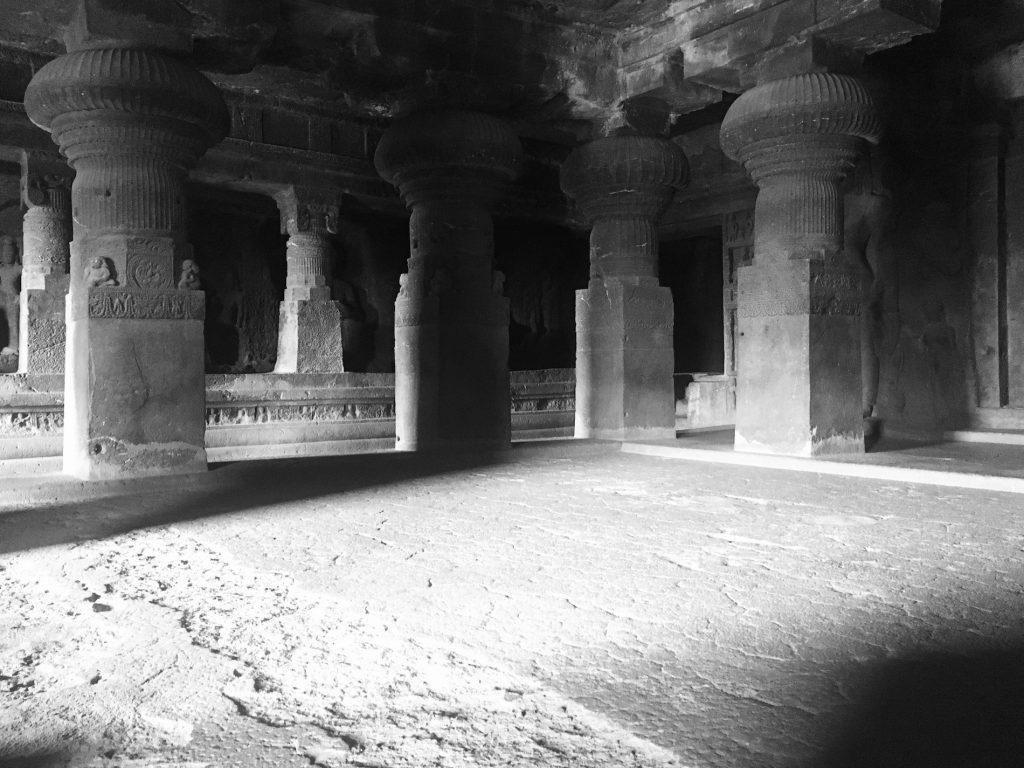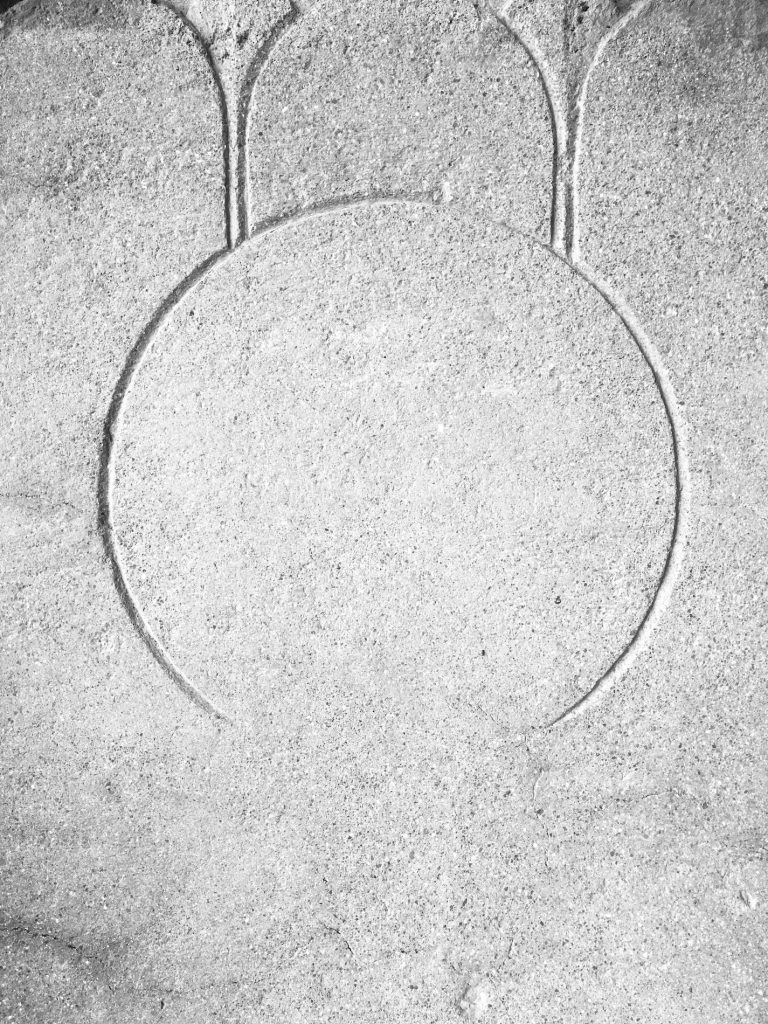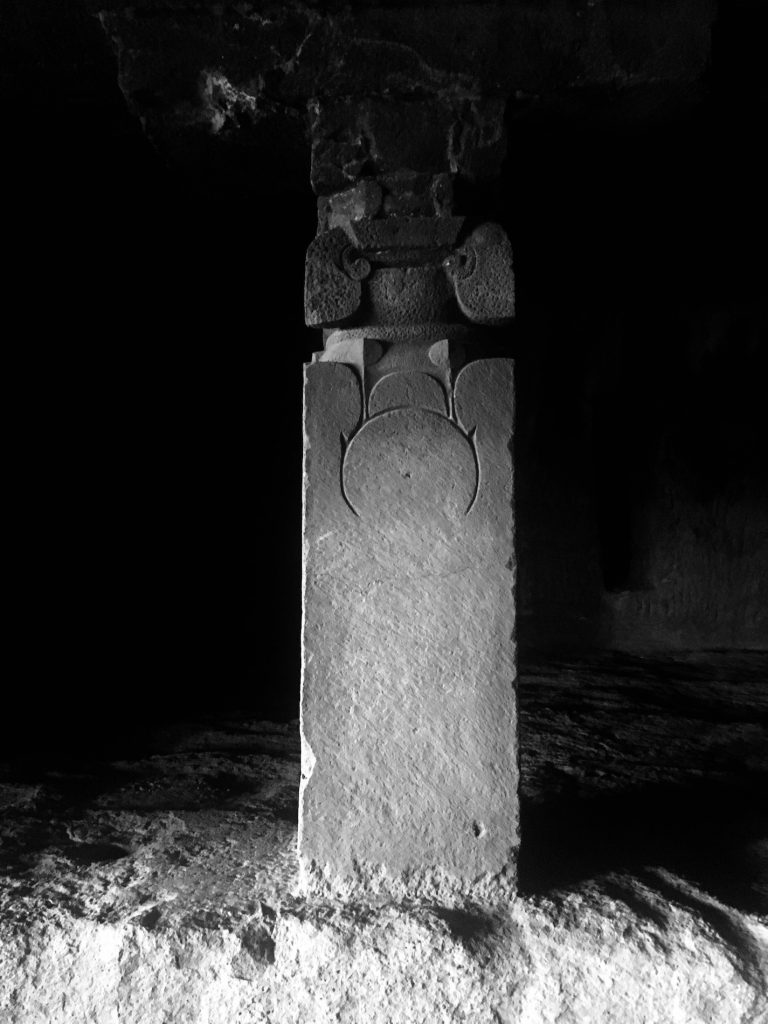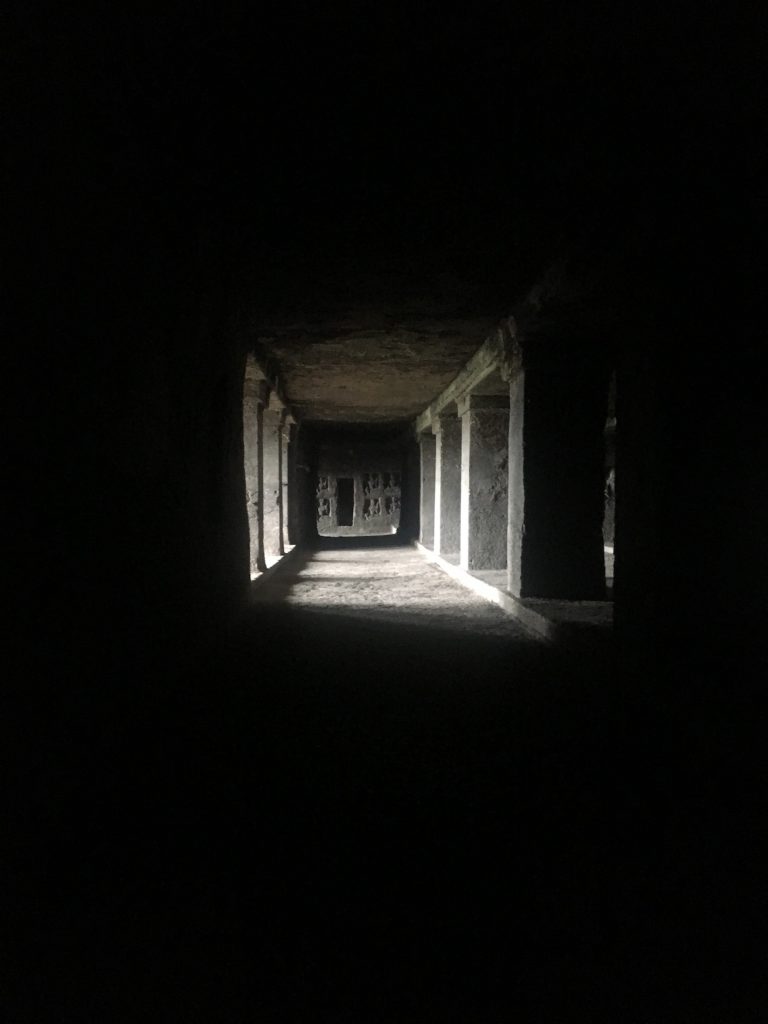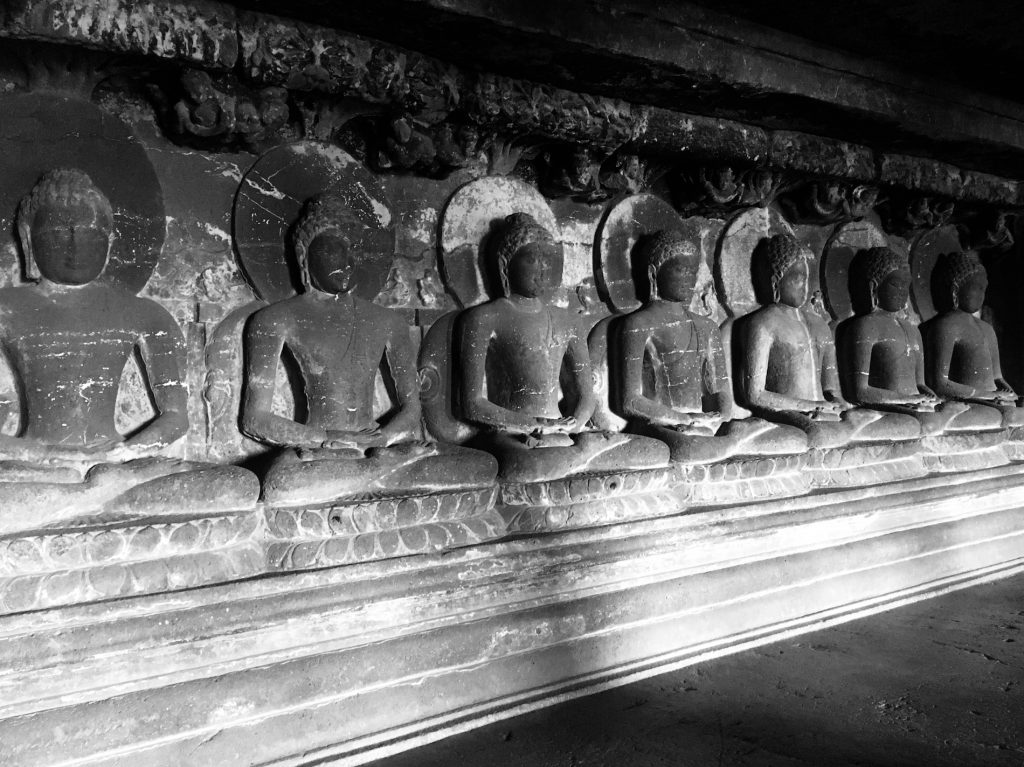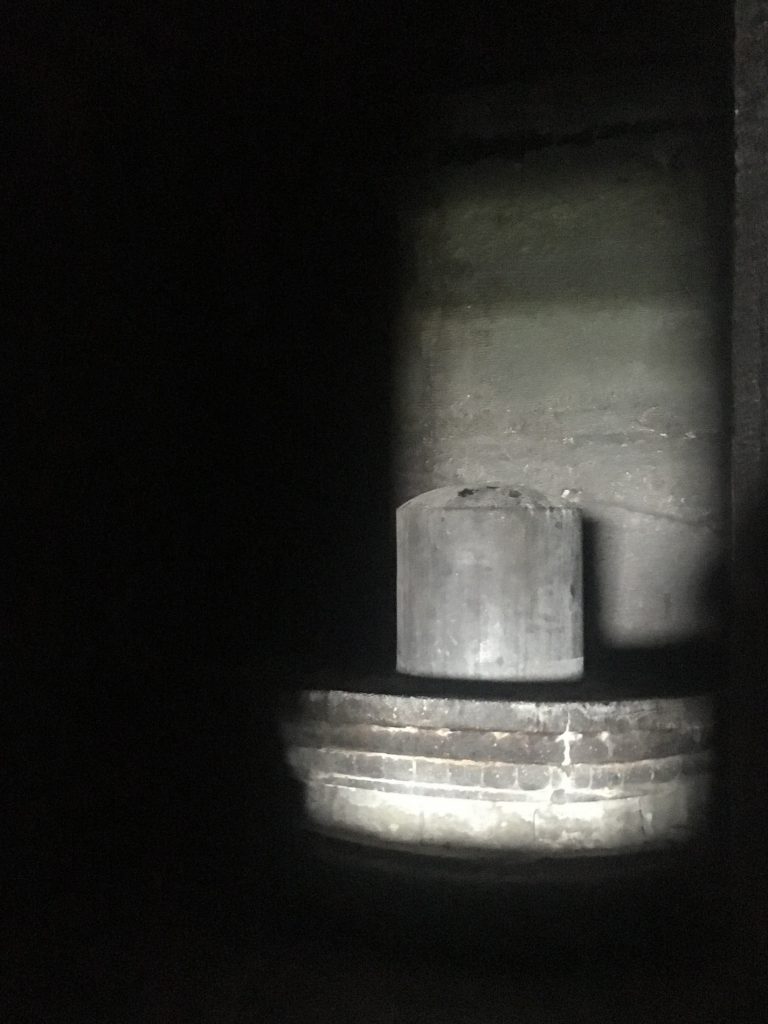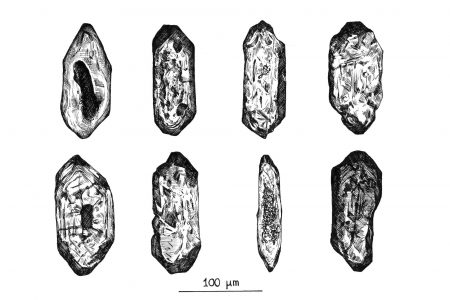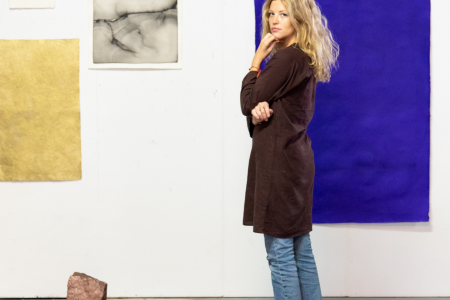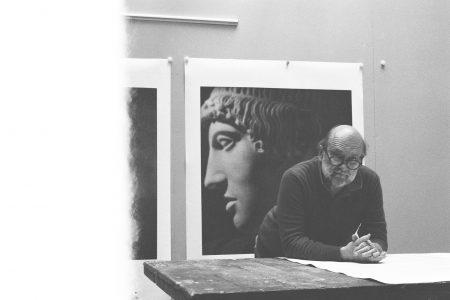Ellora: Emptiness-presence, void-affirmation
Ellora, in close proximity to Aurangabad in India, holds thirty-four cave temples cut into the vertical rock face of the Charanandri Hills.
In the vicinity of Aurangabad in India there exist thirty-four cave temples cut into the vertical rock face of the Charanandri Hills. These sacred sites, named Ellora, were said to be Buddhist, Jain, and Brahmanical, and interwoven with Tantric philosophy. As a number of scholars have pointed out, Tantra had a strong influence on all three of these belief systems. It is claimed to have emerged in South East Asia around 5000 B.C. and proliferated around 400 to 1000 C.E., paralleling Ellora’s excavation, and conceptually and aesthetically influencing it.
The raison-d’être of cutting into the rock face at Ellora is of profound significance. It was not because its constructors were incapable of building above ground as there already existed the capability and capacity to do so. There was a specific reason for cutting into the rock itself.
Coinciding with its creation is thought to be the conception of ‘zero’ (shunya) and, of ‘void’ (shunyata). At Ellora, there exists a specific architectural process in place as a precise means to experience this notion of the ‘void’. The empty spaces are thought to be specifically designed, affirming that ‘form is emptiness, emptiness is form’, and thus bringing one in closer connection with ‘ultimate reality. This ‘void’ is not ‘empty’ but may be filled with the feelings and emotions of the one who enters each space. Thus, these empty spaces are critical components of the architecture. ‘Emptiness’ can be further expressed here as ‘openness’, ‘limitless’, ‘unconfined.
The temples may also be considered to have been sophisticated attempts to realize a total artwork, like a gesamtkunstwerk, a synthesis of not only art disciplines but also of one that integrates science and philosophy. In the Buddhist teaching, Perfection of Wisdom in 8000 Lines, which just precedes the period of Ellora’s construction, there is an emphasis on the notion of ‘relational being’. At Ellora, there are specific interactive and immersive processes that facilitate a sense of deep interconnectedness and relatedness. Both ‘emptiness-presence’ and ‘space-time’ find manifestation in an active engagement between human beings, human construction, natural manifestation, and human ideas. This can only be experienced by visiting the site and temples themselves, where one undergoes a progressive and personal, transcendental journey.
The architects of these masterpieces remain unknown.
This article is republished from TLmag34 Extended: Precious a Geology of Being.
